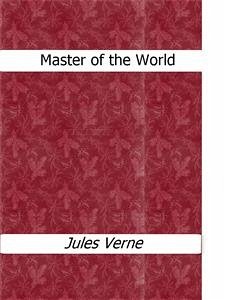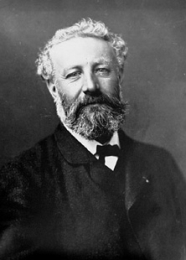Master of the World (French: Maître du monde), published in 1904, is one of the last novels by French pioneer science fiction writer, Jules Verne. It is a sequel to Robur the Conqueror. At the time Verne wrote the novel, his health was failing. Master of the World is a "black novel," filled with foreboding and fear of the rise of tyrants such as the novel's villain, Robur, and totalitarianism.Set in the summer of 1903, a series of unexplained events occur across the eastern United States, caused by objects moving with such great speed that they are nearly invisible. The first-person narrator John Strock, 'Head inspector in the federal police department' in Washington, DC, travels to the Blue Ridge Mountains of North Carolina to investigate.
Bitte wählen Sie Ihr Anliegen aus.
Rechnungen
Retourenschein anfordern
Bestellstatus
Storno










